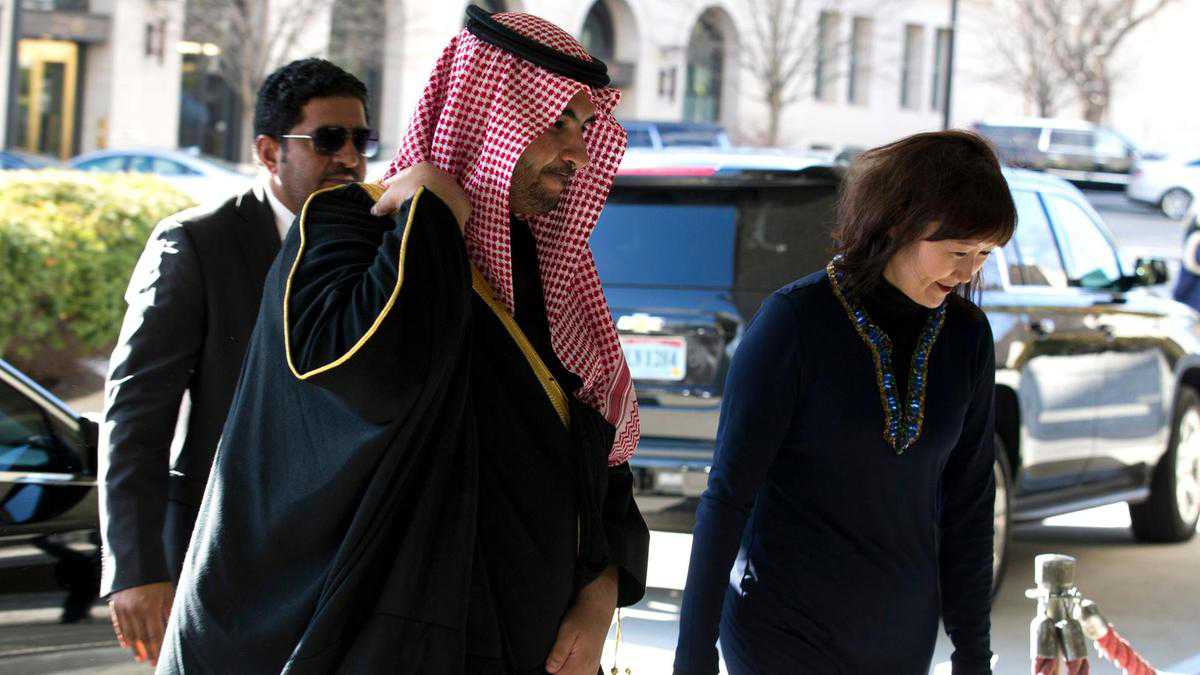Pompeo meets Saudi deputy defence chief as fears over US-Iran escalation mount
07 January, 2020

US Secretary of State Mike Pompeo met with Saudi deputy defence minister Khalid bin Salman on Monday to address the wave of escalation in the region following a US strike that killed Iran’s most senior general.
Prince Khalid arrived in Washington on Sunday, on a quickly planned visit following the US strike on Qassem Suleimani’s convoy on Thursday night in Baghdad. The Saudi official is scheduled to see senior cabinet members in the Trump administration besides Mr Pompeo, including US Defence Secretary Mark Esper and national security adviser Robert O’Brien.
The state meeting was expected to address steps for de-escalation, two Saudi and US official sources told The National.
In a statement, the State Department said Mr Pompeo “thanked the Deputy Minister for Saudi Arabia’s continued support and for working with the United States to counter the threat posed by the Iranian regime.”
“The Secretary underscored that the United States does not seek war with Iran and remains committed to de-escalation," the statement added.
Yasmine Farouk, a visiting fellow in the Middle East Program at the Carnegie Endowment for International Peace, saw de-escalation as a major goal for Prince Khalid’s visit.
“The situation is worrying to Saudi Arabia,” Ms Farouk who studies Gulf politics and visited the region last month, told The National.
“The visit is definitely to explore what next steps are. Saudi Arabia, as we learned from the press reports, was neither notified nor consulted ahead of the Qassem Suleimani operation,” she said.
Mr Pompeo called Riyadh twice before and after the strike but did not notify any foreign party according to The New York Times. Now that “there is a change in US tone in terms of possibility of targeting Iran, this is worrying to Saudi Arabia, because they know that Riyadh could be the target in a retaliatory strike [by Iran],” Ms Farouk said.
Iraq is another area of concern for the Saudi government, Ms Farouk argued. “Saudi has been steadily over the last year, and against Iran’s wishes, building its engagement with Baghdad politically and economically, and it has made critical progress.”
High level visits have taken place and economic agreements have been signed between the two countries, which share an 814-kilometre-long border. “All of this is under threat by the instability and unfolding situation, and Saudi is on high alert when it comes to border security with Iraq,” Ms Farouk said. The work of the coalition forces in Iraq, including US, is paramount for Saudi security, she argued, but is now threatened by Iraq’s parliamentary vote on Sunday to begin the process of removing foreign troops.
Another issue of concern for Saudi Arabia when it comes to Iran is the situation in Yemen. The Houthis’ political office issued a statement vowing that Suleimani’s “blood will pursue them [the US] more than when he was alive.”
Weighing on the broader wave of escalation, Henry Rome of the Eurasia group, put the risk of a direct conflict between the US and Iran at “40 per cent”.
He expects Iran to “likely strike US military forces …despite President Donald Trump’s threats of “major retaliation” against Iranian political and cultural sites.”
He then foresees Mr Trump likely responding militarily to any Iranian attack, but he said the outbreak of a limited or major conflict remains unlikely.
On Monday as well, Israeli Prime Minister Benjamin Netanyahu told his security cabinet that “Israel wasn't involved in the killing of Soleimani and stressed ’it is a US event and we should stay out of it’”, the Israeli Channel 13 reported.
Source: www.thenational.ae
TAG(s):
